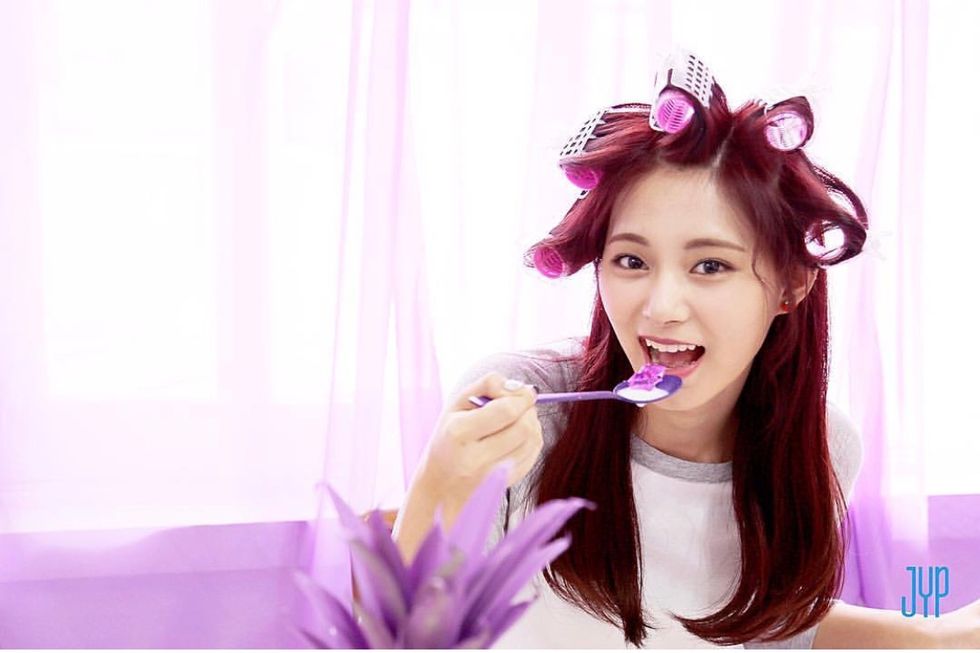It was past 1 a.m. on a school night when all that caffeine had finally started kicking in. Feeling too unmotivated to work and too energized to sleep, I found myself scrolling through my YouTube recommendations feed when amidst the dozens of glamorous makeup gurus and flawless K-pop artists, I came across a video titled "On Being Ugly".
The girl on the thumbnail certainly wasn't glamorous. She wore thick frames, was barefaced and had unruly, curly hair. She looked completely out of place in the middle of all my other recommendations, but perhaps that's what drew me to click on her in the first place.
And I'm glad I did because what she had to say were some of the most beautiful words that I had heard in a long time.
Yet I didn't know how much of it I could believe.
"Being beautiful is not an accomplishment, and being ugly doesn't have to stop you from making accomplishments."
In an ideal world, she'd be right. In an ideal world, we'd all judge people for their souls before their bodies, their kindness before their faces and their talents before their appearance.
But that's not the kind of world we live in.
We live in a world where Instagram models and singers are praised as "legends" before the heroes who die for our country. We live in a world where an attractive young woman who collapses on the street is helped in seconds whereas a collapsed homeless man is ignored for several minutes. We live in a world with multi-million dollar industries that thrive off of people who just want to make themselves look "prettier."
As much as we wouldn't like to admit it, in our society, being beautiful is an accomplishment, perhaps not in the same field as winning a Nobel Prize, but the influence of beauty on achievements is undeniable. I mentioned the rise of Instagram models and social-media influencers who are rolling in thousands based on their physical appearance earlier, but there are countless other occupations where people with good-looks are given a huge advantage.
Take K-pop for instance.
Encased in rigid Asian beauty standards, attractiveness is a must for any artist who wants to succeed in such a competitive industry. Heck, most K-pop groups even have a position dedicated specifically to a "visual" (or, if multiple, a "visual-line") alongside their main vocalists, rappers and dancers. Attractiveness has become a talent. Of course, this isn't to say that all those beautiful idols were able to debut solely because of their looks, but an idol's appearance is still praised much more often than their actual performing ability.
Even in politics, beauty seems to play a significant role. In the first televised presidential debate between Kennedy and Nixon, there was dissonance between the viewers on who actually won the debate. Radio listeners had believed that it was Nixon (whose points were more efficiently made) who won while television watchers believed that the winner had been Kennedy, who had been better dressed and had paid more attention to his appearance that day.
It's been psychologically proven that attractiveness serves as a peripheral route persuasion device that makes people biased towards what you say. As much as we like to tell ourselves that other people's looks don't change affect our opinion of them, we often don't notice our unconscious reactions towards people based on their beauty.
And the world isn't so kind when you're not conventionally pretty.
A couple years ago, my mom was telling me about her friend's son who although had graduated near the top of his class, was having difficulty with finding a job. When I asked why that was the case, she explained that his parents thought that it was due to his looks and were considering getting him plastic surgery.
With all my heart, I hoped that his parents were wrong and that it was due to some other reason, because it's situations like these that make me start despising humanity.
This is why all those "transformation" dramas and movies make me so angry sometimes. They're still the same person, just with a different shell. So why is it that people end up treating their before and after so differently? Why is it that being beautiful puts us into another category of "queens," "legends" or "gods" when we're all still just people?
Start treating us that way, please.






 The minimum wage is not a living wage.
StableDiffusion
The minimum wage is not a living wage.
StableDiffusion
 influential nations
StableDiffusion
influential nations
StableDiffusion












